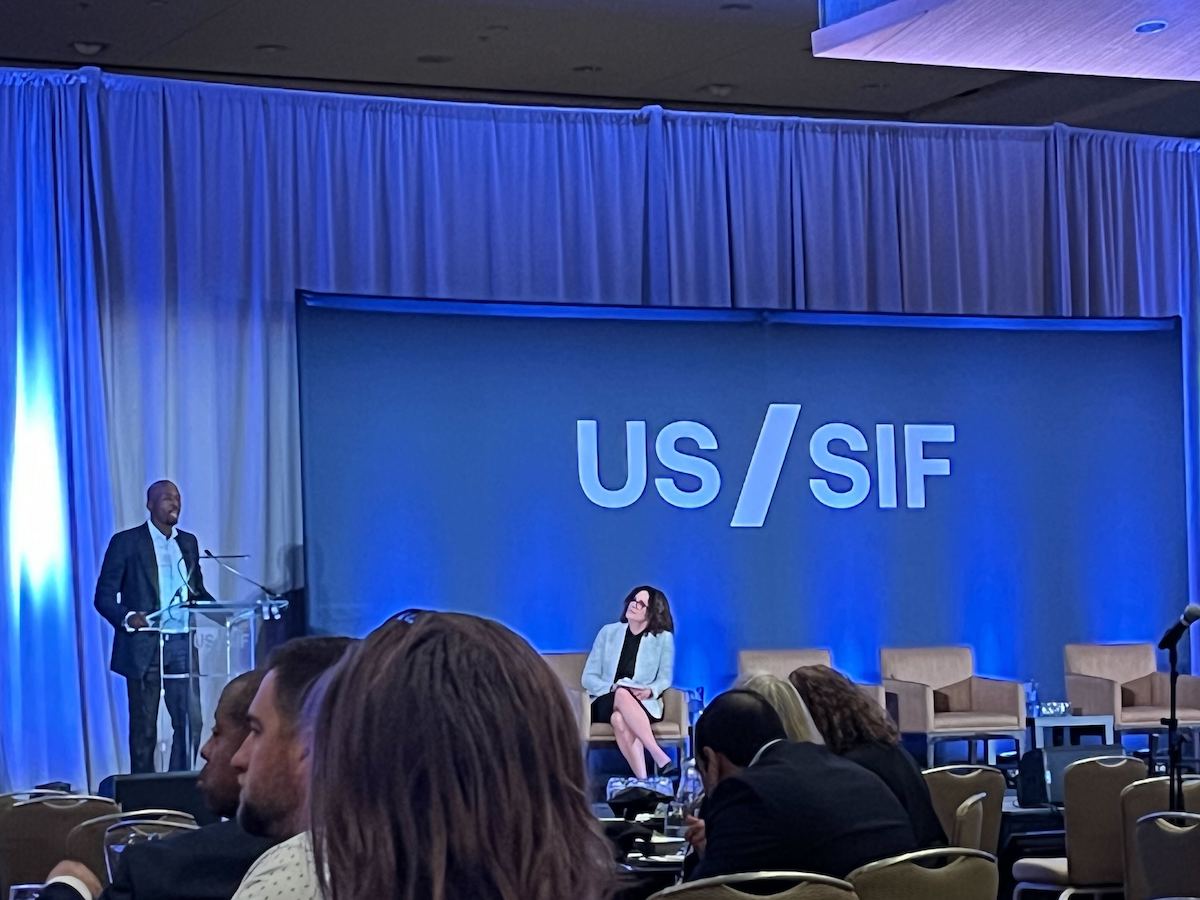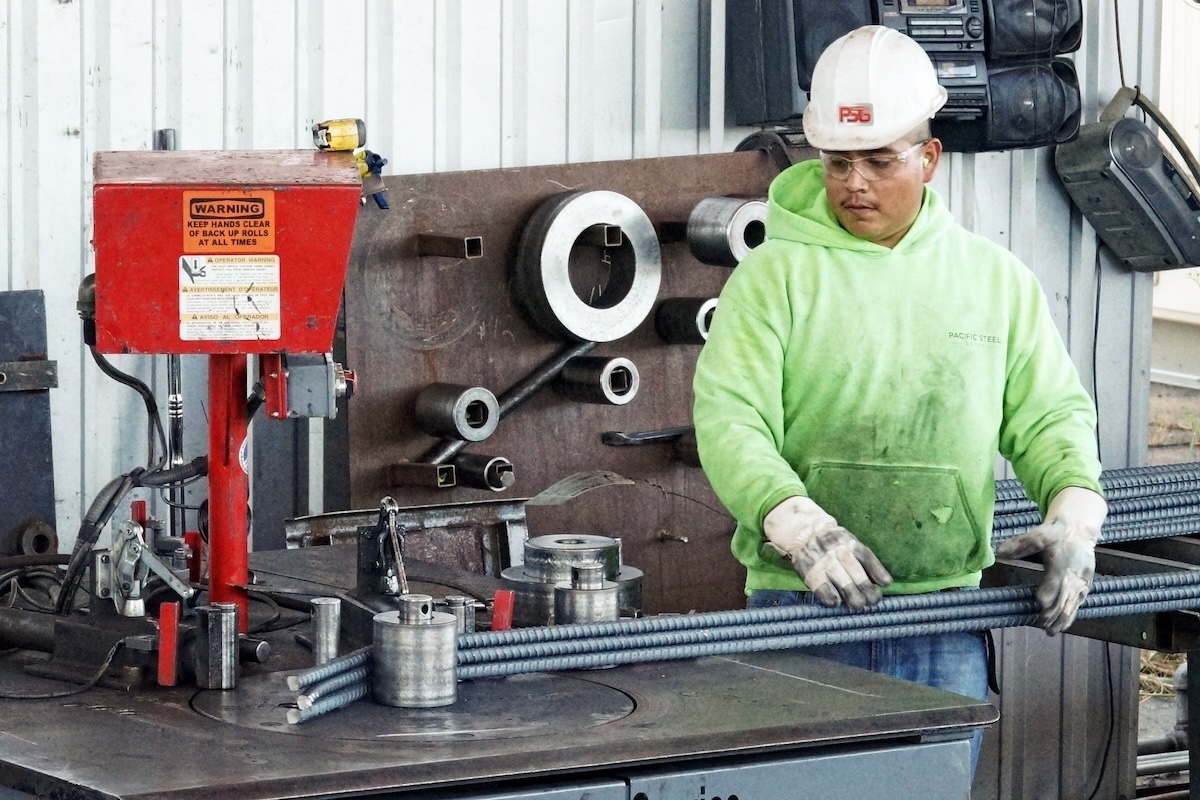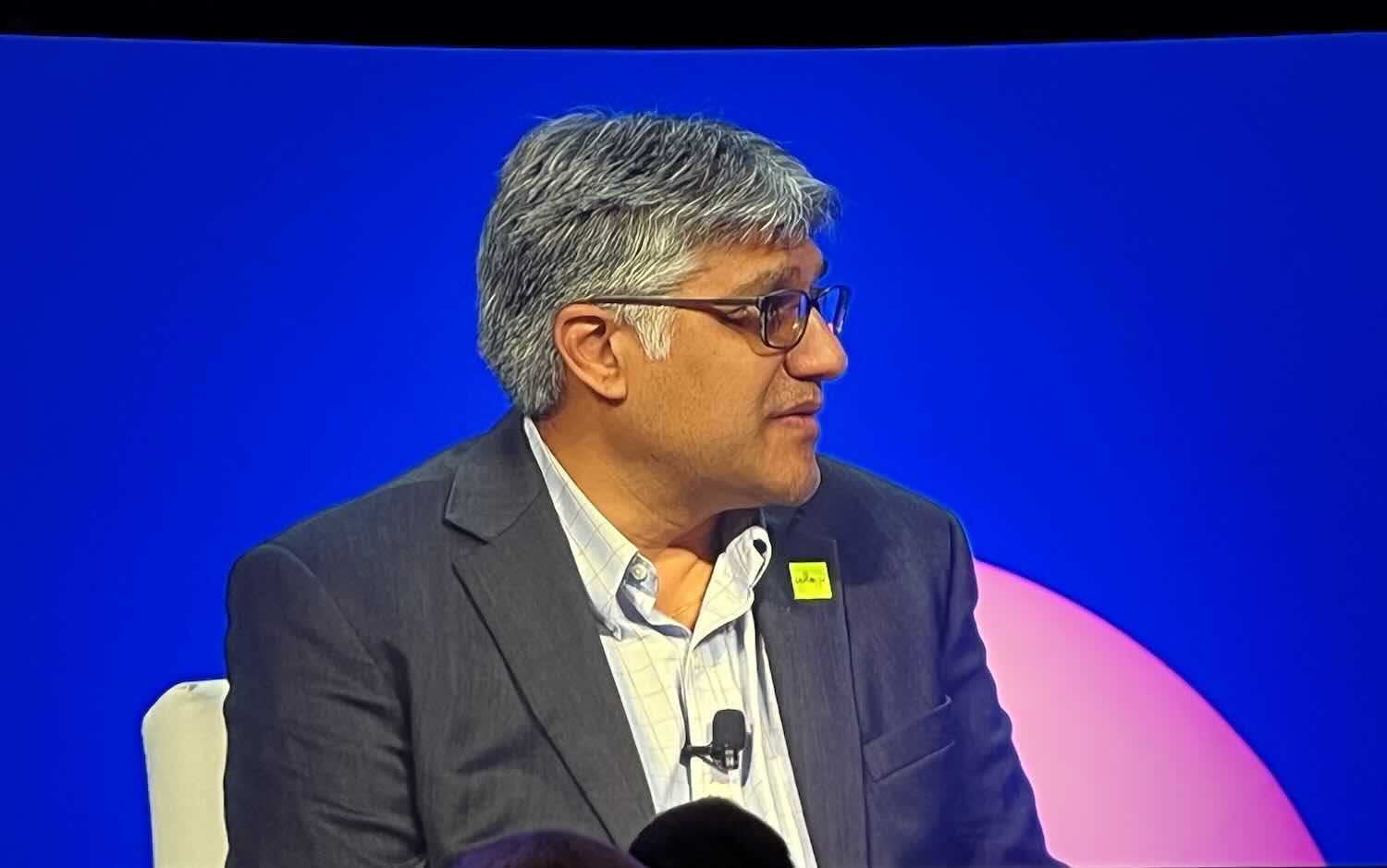It’s a leadership moment.
Anxious utterances at impact investing gatherings this spring have highlighted growing concerns over the coordinated, conservative attacks on environmental, social and governance, or ESG, factors, as well as diversity, equity and inclusion, or DEI.
Now the past week’s confluence of the Supreme Court’s decisions on key climate and regulatory issues and democratic jitters here and abroad have turned that worry into a full-scale panic.
“Devastating implications,” was how the U.S. Impact Investing Alliance’s Fran Seegull put it to ImpactAlpha when asked about the court’s end-of-term decisions on regulations and governance.
The more than 300 impact faithful who gathered in Chicago last week for the US Sustainable Investment Forum’s annual conference resolved to mount a renewed push to “shift the narrative” at a crucial moment in American politics and US and global climate policy.
Call it the pushback to the backlash. Agents of Impact at the conference proposed a range of options: a laser focus on long-term trends and positive results; a plaintive call for that elusive bipartisan progress; the mobilization, finally, of a popular constituency for sustainability and inclusion; and an immediate sprint to safeguard hard-won gains before they are lost.
“The US policy outlook is certainly on the minds of the global capital markets players,” US SIF CEO Maria Lettini told ImpactAlpha — an understatement that reflects how sensitive and tenuous the situation has become.
Impact professionals “are trying to be more vocal, because you need to fight back,” Brady Quirk-Garvan of Natural Investments, an advisory firm in San Francisco, said during a US SIF session on the November election. “We’ve hit a critical mass of investment dollars, a critical mass of force.”
“Folks don’t attack an industry unless there’s some real force and might there.”
Political risk
Litigation-fearing banks and asset managers, including JP Morgan Asset Management and BlackRock, are retreating, in part by dropping out of the Climate Action 100+ network in the wake of the backlash (BlackRock transferred its participation to BlackRock International). Signature initiatives that have fueled a wave of private investment, particularly in green infrastructure and other components of the climate transition, are now at risk of being stopped in their tracks. Such uncertainty changes the investment equation for institutional investors as well as asset managers searching for the next investment theme or trend.
Backers are wondering what initiatives are safe from reversal through court challenges or reversals under a possible new administration. The Environmental Protection Agency, for example, is scheduled this month to finalize agreements with coalitions of community lenders, green banks and climate project developers under the $27 billion Greenhouse Gas Reduction Fund. The so-called national “green bank” is part of the much larger Inflation Reduction Act, a prime target of conservatives.
The concern reflects a broader messaging failure on display in last Thursday’s debate between President Joe Biden and Republican presumptive nominee Donald Trump, staged after the conference ended. Biden barely mentioned his administration’s once-in-a-generation climate and industrial policy or historic effort to tackle inequalities in underserved communities through his signature Justice40 initiative.
Trump has threatened to roll back environmental regulations, boost fossil fuel drilling and referred to “a ridiculous all Electric Car Hoax.”
Lawmakers and officials could potentially seek to use the Congressional Review Act to overturn IRA provisions. Rules that were not finalized before the end of May or so may be vulnerable to a roll back by the next administration. Some conservative states are refusing IRA funding; last August, Florida Gov. Ron DeSantis rejected $350 million in IRA-related energy efficiency incentives.
Bipartisan appeal
Lettini, who took the SIF’s helm last year, found solace in impact investing’s long-held bipartisan appeal. Despite the “high-level chatter,” she said, “There is a desire to reach across party lines; a desire to address the climate crisis; and a desire to ensure that the economy and society is safeguarded for future generations.”
One theme that seems to have crossover appeal: building US social, economic and climate resilience. Through the Inflation Reduction Act of 2022, the most ambitious climate action law in US history, tax credits and loans have already helped jumpstart US manufacturing for solar power, EVs, batteries and the chips used to power them all.
US SIF has increased its outreach and dialogue with the US House of Representatives’ Sustainable Energy & Environment Coalition to socialize the message that the Inflation Reduction Act and ESG investing are pro-business and economic boons. The landmark IRA has spurred at least 316 projects totalling $124 billion, primarily in private capital. That represents the creation of nearly 320,000 new clean energy jobs.
Many of the investments are in low-income counties, many in Republican states, data from nonprofit E2 shows.
“Southern states love the jobs,” said Vistria PRG’s Jon Samuels.
While the pace of sustainable investing may change, its “direction of travel is constant,” Samuels said. “In a world where you’re surrounded by capitalists and people want to make money, this is one way to do it.”
Former Rep. Carlos Curbelo, a Florida Republican, told a lunch panel that climate advocates needed to explain to agricultural and rural communities the economic benefits of climate-safe and sustainable investments. “We need to talk about maximizing our profit,” he said, not just minimizing emissions.
Curbelo called “a war” with oil and gas companies “counterproductive.” Sustainability advocates need to shed what he called a “tribal mentality and abstain from “injecting some kind of culture war into your decision-making process.” He urged them to avoid politically-polarized “demonization” surrounding issues like immigration and gun control.
Tangible benefits
Underpinning the concerns is a recognition that environmental, social and governance, or ESG investing, certainly, if not impact investing as well, has been vulnerable to attack because proponents have not been able to demonstrate results tangible enough to rally a popular constituency.
The self-inflicted wounds include the lack of a clear and compelling narrative about how impact investing benefits regular people. The industry itself has often buried ESG and DEI in jargon that fails to communicate the business case in clear, simple language.
The IRA’s blending of climate action with community development offers an unprecedented opportunity to lift up underserved communities in tangible ways that underscore the shared prosperity messaging. The law has brought together the long-separate fields of climate finance and community development, the MacArthur Foundation’s John Balbach told ImpactAlpha on SIF’s sidelines.
Advocacy groups like the US Impact Investing Alliance are emphasizing social and economic gains and tying impact to corporate strategies or financial returns. (The Alliance sponsors ImpactAlpha’s Policy Corner.)
Climate-driven extreme weather is costing states and cities billions of dollars. Even the US Chamber of Commerce, the powerful business lobby that has worked against climate policies, is calling on governments, businesses and communities to invest in green infrastructure, wetlands restoration, home and business upgrades and other adaptive measures to manage the impacts of global warming. In a recent report, the trade group noted that for every $1 spent on climate resilience and preparedness, communities save $13 in damages, cleanup costs and economic impact.
The climate-action-benefits-all messaging is part of a much needed “reboot” by the sustainable and impact industries, said Mamadou-Abou Sarr of V-Square Quantitative Management, a Chicago-based investing firm.
Spin cycle
National Community Investment Fund’s Saurabh Narain said that now was the time for not just “peaceful protest” but also impact “street fighters.”
Narain said that family offices, whose long-term investment horizons aren’t beholden to pressure from shareholders or politics, can help keep things on track.
Many SIF attendees acknowledged on the sidelines that charges of greenwashing had helped fuel the backlash, as had sometimes burdensome and murky reporting and ratings systems.
But they insisted that the fundamentals of sustainable investing remain.
“There’s a false narrative that has gotten a lot of traction,” US SIF Director of Policy and Programs Rachel Curley said. “We have an incredible opportunity to explain ourselves” and “capture policy makers’ attention.”
lllinois State Treasurer Michael W. Frerichs told a panel that free market conservatives slamming what they term “woke capitalism” fail to see the business case for public and private investments in clean-tech and social ventures whose effects multiply out.












